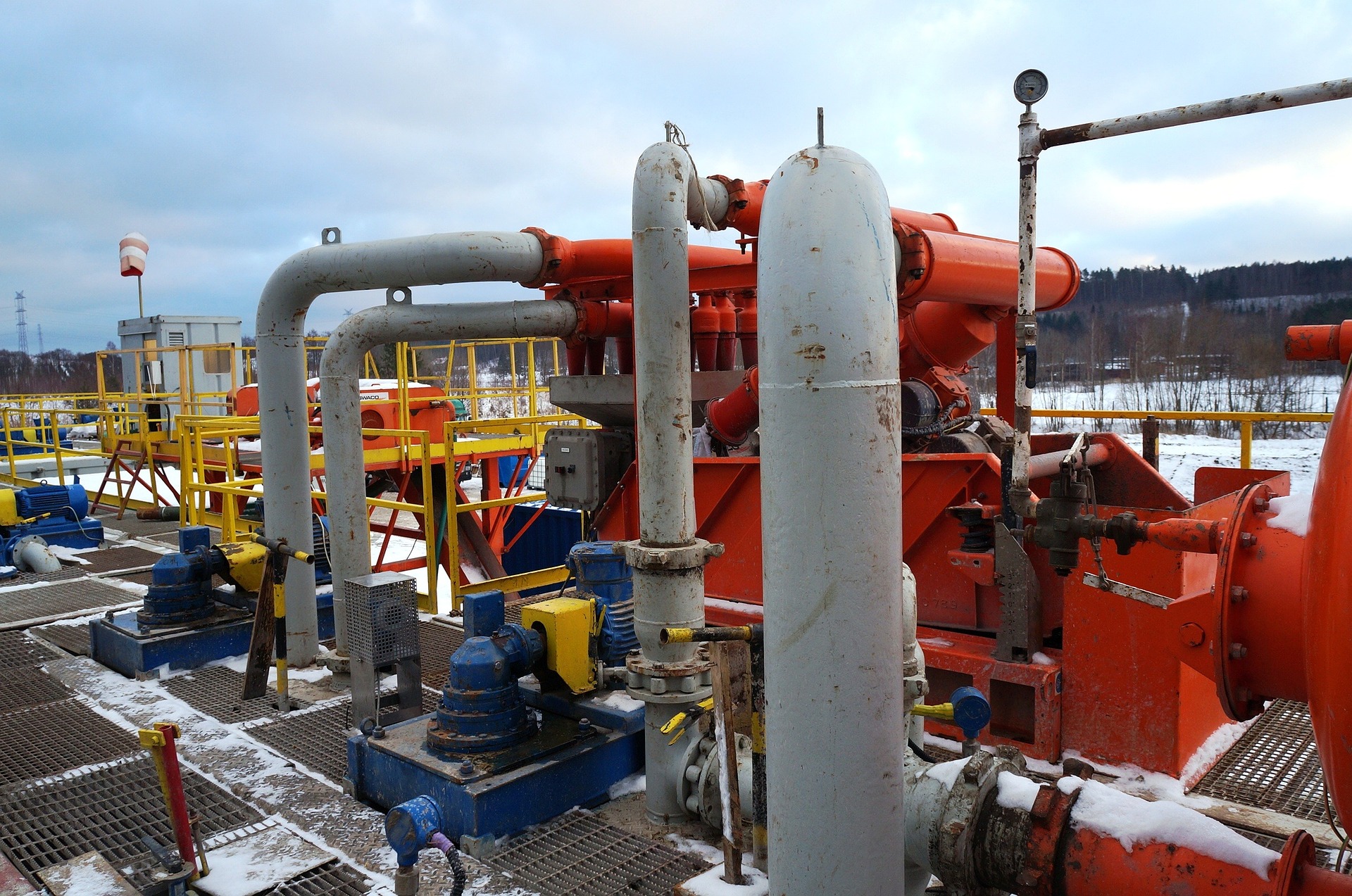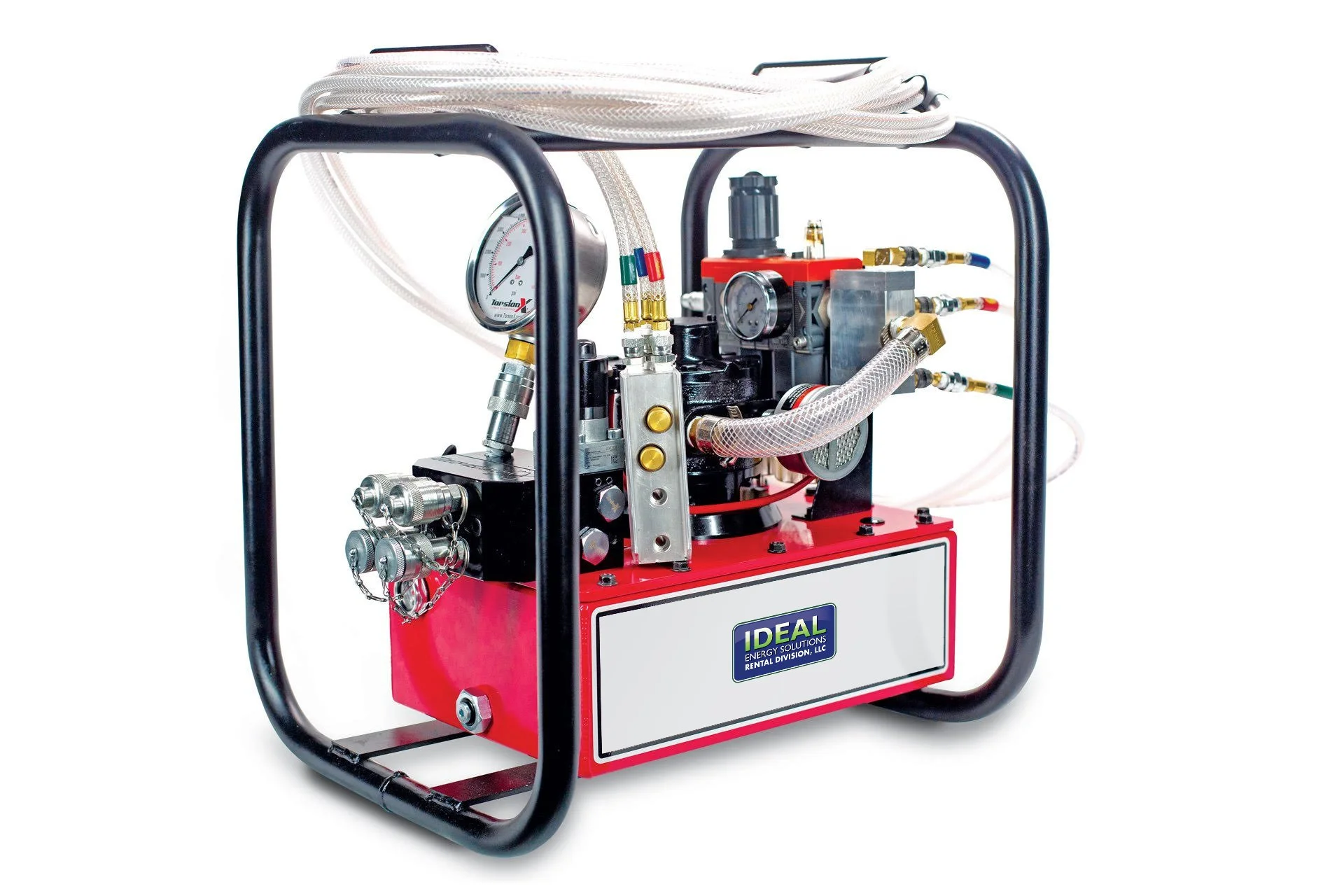A Comprehensive Overview to the Numerous Kinds of Oil Field Equipment and Pipeline Equipment Available
The oil and gas industry relies greatly on specialized tools for effective extraction and transportation. Numerous sorts of equipment, from drilling rigs to storage tanks, play crucial functions in this complicated procedure. Each piece of devices serves distinctive features that add to total functional success. Recognizing these parts is essential for anyone involved in the industry. As the market progresses, so as well do the innovations that support it. What developments are on the horizon?

Drilling Rigs: The Backbone of Oil Expedition
Drilling rigs function as the necessary machinery in the domain name of oil expedition, enabling business to accessibility hydrocarbon books hidden deep below the Planet's surface. These rigs are available in numerous types, including land rigs, offshore rigs, and mobile devices, each designed to operate in specific atmospheres. Geared up with advanced technology, piercing rigs can permeate geological developments with precision, ensuring reliable resource extraction. The structural stability and functional capacities of these rigs are crucial, as they have to stand up to extreme conditions and considerable stress. The choice of an exploration gear impacts the overall project price and timeline, making it a vital consideration for oil firms seeking to optimize their exploration initiatives and maximize productivity in their procedures.
Pumps: Crucial for Liquid Activity
In the oil removal process, the duty of pumps is significant, promoting the motion of liquids throughout numerous phases of production. Pumps are vital for carrying petroleum, water, and other fluids from below ground storage tanks to the surface area and after that through pipes to refineries. They can be found in different types, consisting of centrifugal, favorable displacement, and completely submersible pumps, each offering specific functions based upon the fluid characteristics and operational demands. Centrifugal pumps are typically utilized for their efficiency in high-flow applications, while favorable variation pumps master managing viscous liquids. The option of pump impacts general effectiveness, operational safety and security, and maintenance costs. Proper selection and upkeep of pumps are essential for enhancing production and decreasing downtime in oil field procedures.
Valves: Managing Circulation and Pressure

Valves play a vital function in taking care of the flow and pressure of fluids within oil fields and pipes. Numerous kinds of shutoffs serve distinct applications, each designed to satisfy certain features basic for reliable procedure - Superior Rentals midland. Comprehending the attributes and uses these valves is vital for enhancing system efficiency and security
Sorts of Valves
Necessary elements in oil field operations, valves play an essential duty in managing the flow and stress of fluids within pipes and equipment. Various sorts of valves are utilized to meet the diverse needs of oil and gas production. Common kinds consist of entrance shutoffs, which offer a straight-line circulation and very little stress decrease; globe valves, recognized for their strangling capacities; and round shutoffs, acknowledged for their fast on/off control. Furthermore, check shutoffs avoid backflow, while butterfly shutoffs offer a lightweight option for regulating circulation. Each shutoff kind is developed with certain products and configurations to withstand the severe problems often found in oil fields, guaranteeing integrity and efficiency in operations. Understanding these kinds is vital for efficient system administration.
Valve Applications and Functions
While different kinds of valves offer distinct purposes, their key applications revolve around regulating flow and stress within oil and gas systems. Valves such as entrance, globe, and sphere shutoffs control fluid movement, making sure peak performance and security. Gateway valves are generally utilized for on/off control, supplying minimal circulation resistance. Globe valves, on the various other hand, deal precise flow law, making them appropriate for strangling applications. Ball shutoffs are preferred for their quick operation and limited securing abilities. Additionally, pressure alleviation valves are crucial for stopping system overpressure, securing equipment honesty. In general, the proper option and application of valves enhance operational performance, ensuring the trustworthy transportation of oil and gas via pipelines and processing facilities.
Compressors: Enhancing Gas Transport
Compressors play a vital duty in the efficient transportation of all-natural gas, guaranteeing that it relocates efficiently via pipes over fars away. These tools raise the stress of gas, permitting it to get over rubbing and altitude adjustments within the pipeline system. Additionally, compressors facilitate the balancing of supply and demand, fitting variations in intake and production rates. Various types of compressors are employed in the industry, consisting of centrifugal, reciprocating, and rotating screw compressors, each offering distinctive benefits based on the operational requirements. Routine upkeep of these compressors is necessary to optimize efficiency and reduce downtime, inevitably adding to a reliable gas transportation network. Their vital function underscores the importance of compressors in the overall oil and gas infrastructure.
Storage Tanks: Safe and Reliable Liquid Monitoring
Reliable transport of gas depends on different sustaining systems, one of which is the proper monitoring of storage tanks. These storage tanks play a vital role in securely having fluids, ensuring that functional efficiency is kept while reducing environmental dangers. Constructed from long lasting materials, they are made to withstand high pressures and corrosive components. Appropriately sized and tactically located, tank help with the smooth circulation of gas and various other liquids, stopping traffic jams in supply chains. Normal maintenance and surveillance are necessary to spot leaks or architectural problems, promoting security and conformity with governing standards. Ultimately, the reliable management of tank is crucial for the overall integrity and integrity of the oil and gas market's fluid handling systems.
Pipeline Solutions: Infrastructure for Transportation
Pipeline systems act as the backbone of the oil and gas description market, helping with the reliable transportation of hydrocarbons over large ranges. These systems consist of numerous parts, including pipes, shutoffs, pumps, and compressors, all meticulously made to guarantee smooth flow. The products made use of in pipeline construction, typically steel or high-density polyethylene, are chosen for longevity and resistance to corrosion. Pipeline networks can span across land and water, linking manufacturing websites to refineries and circulation facilities. Furthermore, advanced innovation allows real-time surveillance of circulation prices and pressure levels, enhancing operational efficiency. The strategic positioning of these pipes decreases ecological influence while making the most of resource accessibility, thereby playing an important role in meeting power needs internationally.
Safety And Security Equipment: Making Certain Employee and Environmental Management
The operation of pipeline systems, while vital for energy transport, additionally provides significant safety obstacles for employees and the atmosphere. Safety tools plays a considerable role in mitigating these threats. Personal safety equipment (PPE) such as helmets, gloves, and non-slip footwear safeguards workers from physical hazards. Furthermore, gas discovery systems check for leakages, making certain that hazardous compounds do not position a threat to employees or the bordering environment. Emergency closure systems are essential for promptly stopping operations throughout a situation, avoiding possible catastrophes. Spill containment products, including absorbents and barriers, are basic for reducing environmental impact. On the whole, buying all-encompassing safety equipment is check these guys out vital for maintaining functional integrity and safeguarding both employees and the atmosphere in the oil and gas field.

Often Asked Questions
Just how Do I Pick the Right Oil Field Equipment for My Job?
Selecting the best oil field equipment entails reviewing job specs, budget constraints, and functional requirements. Consider variables such as tools dependability, compatibility with existing systems, and the provider's reputation to assure peak efficiency and safety.
What Are the Maintenance Requirements for Oil Field Equipment?
Upkeep requirements for oil area equipment consist of normal evaluations, lubrication, and prompt repair services. Operators needs to additionally follow supplier standards, monitor efficiency metrics, and guarantee conformity with safety and security regulations to improve durability and efficiency.

Exactly How Can I Make Sure Conformity With Environmental Laws?
To ensure this content conformity with ecological policies, firms should carry out normal audits, apply ideal practices, purchase training, keep appropriate documentation, and remain updated on regulation (Superior Oilfield pipeline equipment rentals). Collaboration with environmental firms can additionally improve adherence to policies
What Is the Typical Lifespan of Pipeline Equipment?
The average life expectancy of pipeline equipment commonly ranges from 20 to half a century, depending upon aspects such as material top quality, ecological problems, and maintenance techniques. Normal assessments can substantially influence long life and functional effectiveness.
Just how Do I Safely Transfer Oil Field Equipment to Remote Locations?
Moving oil area tools to remote areas calls for mindful preparation, including path assessment, securing permits, using appropriate vehicles, and making certain safety and security procedures are adhered to. Appropriate training and interaction among staffs are vital for successful transport.